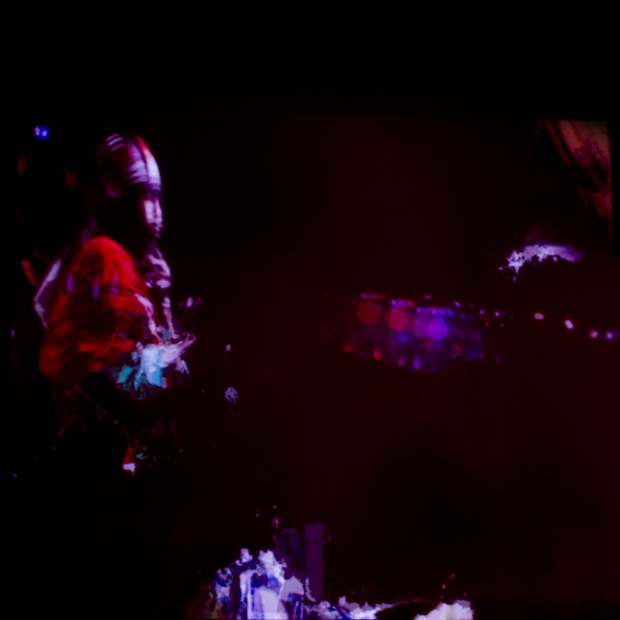Recent indie music highlights from Spring 2016
The term “indie” is probably the most vague term in music. While there is such a thing as independent record labels which release music without the funding of major labels, such music transverses all genres, and therefore the term “indie” connects to no certain musical pallette or common lyrical themes. Nevertheless, last month was an unexpectedly exciting month for independently released music, and here are some of the highlights.
May 9, 2016
Animal Collective
Animal Collective’s individual members have had several successful side-projects over the years, most notably: Avey Tare’s Slasher Flicks and Panda Bear’s extensive collection of highly-acclaimed and far-reaching experimental music. But Animal Collective band member, Deakin, often goes widely unnoticed, having jumped in and out of the band’s line-up since the early-years and no personal musical credits to his name. That’s the very reason why “Sleep Cycle,” Deakin’s debut solo record, comes as such a pleasant surprise: there was so little expectation for this record to be something remarkable. It turned out to be a beautifully personal album which delightfully touches upon psychedelia, folk, rock, and electronic musical influences.
The history of this record is a strange one and it goes back to the creation of a kickstarter campaign in 2009, which Deakin created to fund his travels to Mali that year to play at a music festival and, in return, gave fans an album of original music and a booklet of pictures to accompany.
As years went by and Deakin having yet to release the record, fans became agitated, with some claiming that they were exploited to fund Deakin’s travels to Africa. And then, strangely enough, this year on January 7, he announced the completion of the record six years after the creation of the kickstarter campaign, and it was finally released this past month.
In the best of ways, the unusual amount of time that has been put into making this record shines throughout its tracks, as Deakin’s self-described “fatal-perfectionism” has led to one of the most stunning solo-records to come from an Animal Collective member. Musically, the record reflects its title, “Sleep Cycle,” as the listener drifts into and out of consciousness throughout the record’s half-hour time-frame.
On some tracks, such as “Just Am”––the initial single––the music has a disorienting effect, which effectively transports the listener to a sort-of subconscious dream-place. On other tracks, such as the chaotic “Footy,” Deakin shakes the listener awake in a whirlpool of distortion-heavy guitar and erratic drum fills. Throughout its six tracks, “Sleep Cycle” proves constantly adept in its purpose of absorbing the listener into a whirlpool of thought with no definitive start, end, or climax.
No track on the record, however, reaches the level of bittersweet bliss that Deakin portrays on the very first song of the record. “Golden Chords” is easily one of the most beautiful tracks of this year—a yearning, wind-swept message of acceptance and self-renewal.
In many ways, Deakin’s solo debut is in debt to the internet age; it holds its roots in a kickstarter campaign, meaning without the help of the internet, it’s possible that this music would never have been created. But most of all, it’s most direct purpose seems to come in spite of the internet age; this sort of disorienting music is important in the content-driven state of our social lives because it brings us beyond our visible selves which have come to define us and into a less definable realm of being—our subconscious—where we don’t have to be anything at all.
Parquet Courts
First and foremost, Parquet Courts are not a quiet band; their past three records ”Light Up Gold,” “Sunbathing Animal,” and “Content Nausea” were punk-influenced Americana Rock that took stabs at political and social issues. However, on their latest record, “Human Performance,” they have quieted down (slightly), making room for more personal themes of love, disdain for one’s past, and the limiting factors of modern life alongside their characteristic qualities, while sounding at times more like alternative rock’s forefathers, The Velvet Underground, than ever before.
Musically, “Human Performance” does not differ greatly in comparison to Parquet Courts’ previous records; their american-rock sound remains––quirky, yet cool with its complementary guitars and Thurston Moore-esque vocals from Savage and Brown. Where it does differ, however, is in veering slightly from their past-dedication to pure guitar rock; on this record, they incorporate electronic drums and synths to their music, effectively widening the scope of their sonic reach.
The album’s highest reaching point is in the side-by-side tracks, “Human Performance and “Outside,” on which primary songwriter, Andrew Savage, displays his remarkable lyrical strength. “Human Performance” is a regret-filled track about mistreating the one you love and features an infectious, vocal effects-heavy chorus. “Outside” features a similar theme, detailing how those people one loved in the past continue to live on and affect them in the present.
Other highlights include “Captive of the Sun,” a sort of early ‘90s Beck sounding laidback chant track about the restraints of modern life, “Steady on My Mind,” a downbeat tune about spending time away from the one you love, and “One man, No City,” the most punk track on the record, in which Brown takes a contemptuous look-back at his childhood hometown of Denton, Texas.
Human Performance Technology is a business approach to maximizing individual and organizational performance. On the title-track, Andrew Savage gives his idea of what maximizes performance: “Phantom affection gives a human performance.” According to Savage, what drives us to act is the very thought that we are loved, giving end to the notion of love as an intangible that is both given and received, and opening the door to the selfish belief that the idea of love received is enough to motivate a human being in the internet age.
Frankie Cosmos
Memories are often not remembered in their entirety but instead as split-second snapshots that zone in upon the heart of the experience. Frankie Cosmos’ follow-up to 2013’s simplistically brilliant “Zentropy” does just that, displaying memories as snapshots through minimalistic, quirky, and soft-spoken indie-pop.
When listening to this collection of 15 tracks, Frankie Cosmos’ voice takes center center stage, and it floats gracefully upon melodies that would be distracting if she did not express them modestly and without undue elaboration. Floating right alongside these well-calculated melodies are Cosmos’ lyrics, which, on a page, resemble verses of concise, accessible poetry.
The album flows with remarkable speed, due to expert track sequencing of songs that rival The Ramones’ in brevity—not a single one surpasses the three-minute mark—with the longest track only two minutes and forty-three seconds in length (“Too Dark”). This characteristic works to Frankie Cosmos’ benefit, as songs of this sort can often be laborious if stretched to an uncomfortable length, and while some may find the length of these tracks unsatisfying, her music may feel like eating fast-food to others—quick and direct, yet hitting all of the sweet spots and not trying too hard to show off.
Cosmos hits her stride with her lyrics, which are personal and existentially pondering. In the song, “On The Lips,” Cosmos considers a possibility but not before attempting to decide on a purpose for seizing the opportunity: “Why would I kiss ya? If I could kiss ya?” Other songs take more direct aim at broader issues. For example, on “If I Had a Dog,” she touches on the sexist notions of people in the music industry: “Everybody says/Your decisions are okay/But here’s a better idea/And a comment not about my brain.”
Cosmos’ musical minimalism is to the benefit of her lyrics and melodies, which float upon the surface of carefully arranged synth, guitar, and drum tracks that deliver quirkiness and appropriate accompaniment to her modest yet captivating vocals. This unostentatious indie-pop minimalism combined with Cosmos’ apparent seriousness and skill at her lyrical craft establishes “Next Thing” as one of the best indie-pop records of this year—if not the decade—so far.



